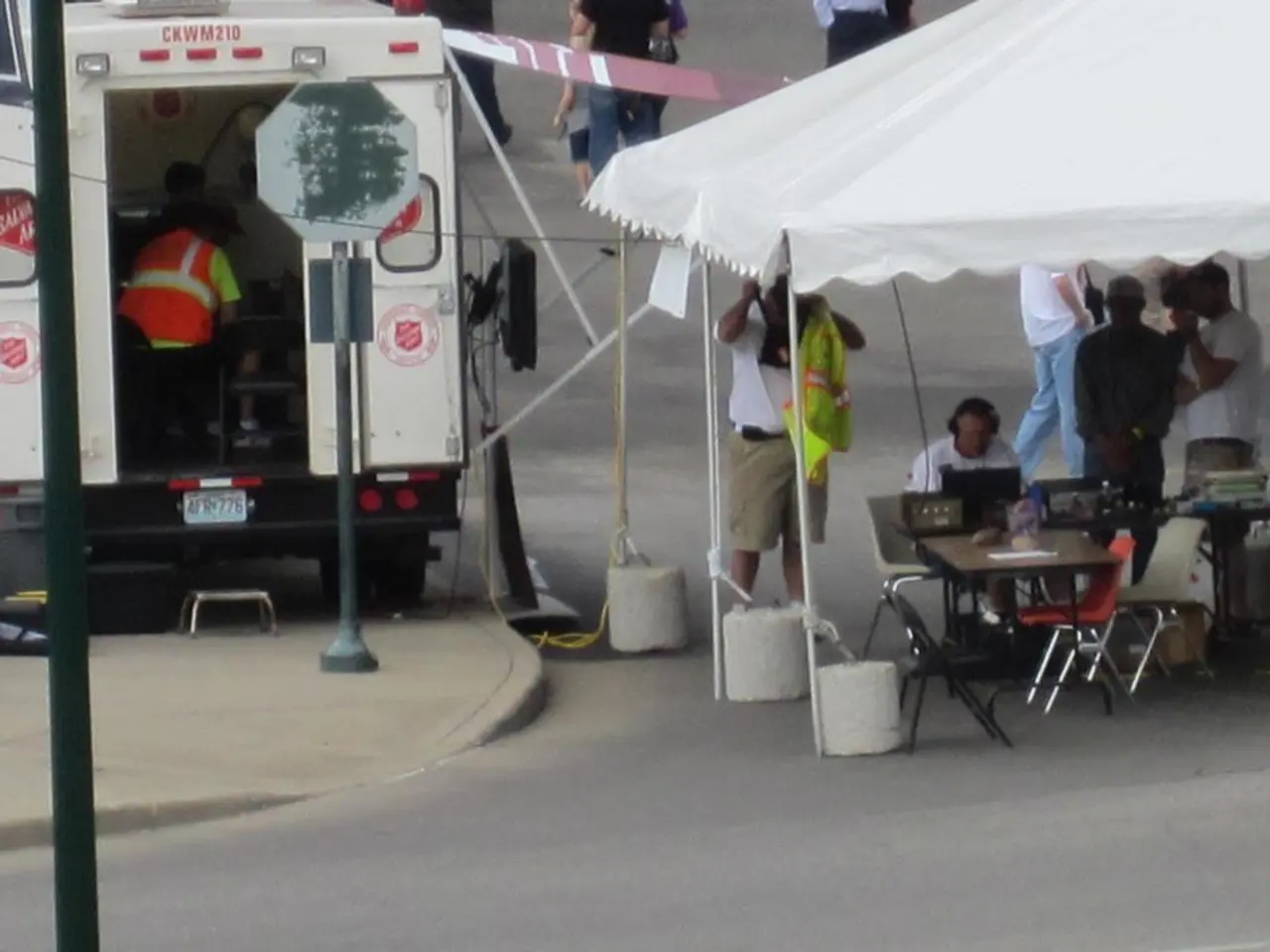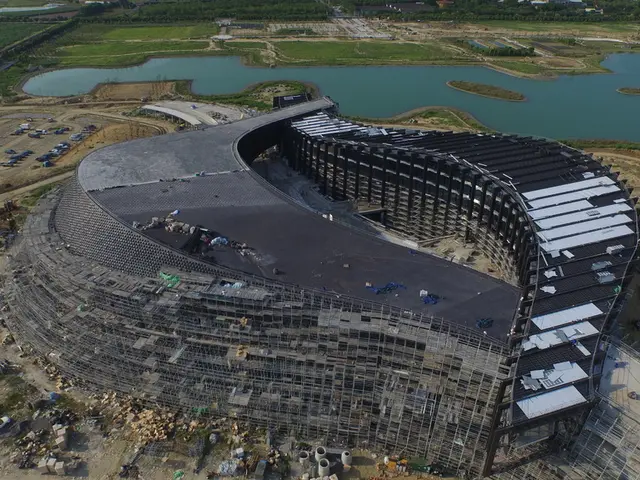International figures, including EU representatives and 26 foreign ministers, advocate for non-governmental organizations to gain entry into the Gaza Strip
A joint declaration by 26 Western countries, the European Union, and several other nations is urging Israel to allow humanitarian aid to reach the Gaza Strip without obstruction. The declaration, signed by representatives from most EU countries, Australia, Canada, Iceland, Japan, Norway, Switzerland, the UK, and the EU Commission, calls for all border crossings and routes to be utilized to enable aid to reach those in need [1].
The declaration warns of the specter of famine in Gaza and urges urgent action to stop the spreading crisis. Items needed for aid include food, shelter, fuel, clean water, and medicine [1]. The representatives have demanded that the Israeli government grant permanent access to the Palestinian territory to the United Nations, non-governmental organizations, and humanitarian actors [1].
Despite Israeli Prime Minister Benjamin Netanyahu's reaffirmation that there is no famine in the Gaza Strip, the situation remains dire. Humanitarian partners have been able to deliver some food aid, but the amount is drastically reduced compared to pre-conflict levels [2]. Since late May, over 1,370 Palestinians have been killed trying to access food aid sites or convoys, most killings attributed to Israeli military actions, despite Israel's claim of daily military pauses to improve aid delivery [2][3].
The UN has reported continued attacks on aid convoys and sites in Gaza despite these pauses [2]. Aid workers themselves face extreme risks; the Gaza conflict has become the deadliest context globally for humanitarian workers, with many local Palestinian aid staff killed alongside health workers attempting to provide vital services [4]. As of August 2025, over 500 aid workers have died since the conflict escalated in late 2023, reflecting the high human cost of delivering aid in Gaza [4].
International humanitarian organizations and over 200 groups have strongly criticized Israel’s blockade and restrictions, warning that the situation is rapidly evolving into a famine with mass starvation occurring in Gaza. They call for lifting the blockade and restoring UN-led coordination mechanisms to ensure aid can reach those in need [3].
Netanyahu has stated that Israel has provided aid to the Gaza Strip, but the only ones going hungry are the hostages held by Hamas [5]. However, the declaration and the ongoing humanitarian crisis paint a starkly different picture. The declaration emphasizes the need to protect civilians and aid workers at distribution points [1].
This reflects a critical humanitarian crisis in Gaza where aid delivery is severely jeopardized by ongoing conflict and restrictive measures [2][3][4][5]. The international community is urging Israel to take immediate action to ensure the safe and unhindered delivery of aid to those in need.
[1] The Guardian. (2025, August 1). Joint declaration calls for unhindered aid access in Gaza. [online] Available at: https://www.theguardian.com/world/2025/aug/01/joint-declaration-calls-for-unhindered-aid-access-in-gaza
[2] Al Jazeera. (2025, August 5). Israeli military attacks on Gaza aid convoys continue despite claims of daily pauses. [online] Available at: https://www.aljazeera.com/news/2025/8/5/israeli-military-attacks-on-gaza-aid-convoys-continue-despite-claims-of-daily-pauses
[3] Middle East Eye. (2025, August 8). Humanitarian groups call for lifting of Israeli blockade on Gaza. [online] Available at: https://www.middleeasteye.net/news/humanitarian-groups-call-lifting-israeli-blockade-gaza
[4] Save the Children. (2025, August 12). The grave dangers aid workers face in Gaza. [online] Available at: https://www.savethechildren.org/news/the-grave-dangers-aid-workers-face-in-gaza
[5] Haaretz. (2025, August 15). Netanyahu: Only hostages held by Hamas are going hungry in Gaza. [online] Available at: https://www.haaretz.com/israel-news/.premium-netanyahu-only-hostages-held-by-hamas-are-going-hungry-in-gaza-1.9389223
- The ongoing crisis in Gaza, marked by war-and-conflicts and political instability, requires immediate attention from the international community, as the situation has escalated into a general news issue of grave concern, with potential famine looming and humanitarian workers facing extreme risks.
- Despite statements from Israeli officials denying the existence of famine in Gaza, the daily life-threatening incidents and restrictions on aid delivery underscore the urgent need for politics to prioritize humanitarian assistance, ensuring unhindered access for the United Nations, non-governmental organizations, and humanitarian actors to prevent further deterioration.








